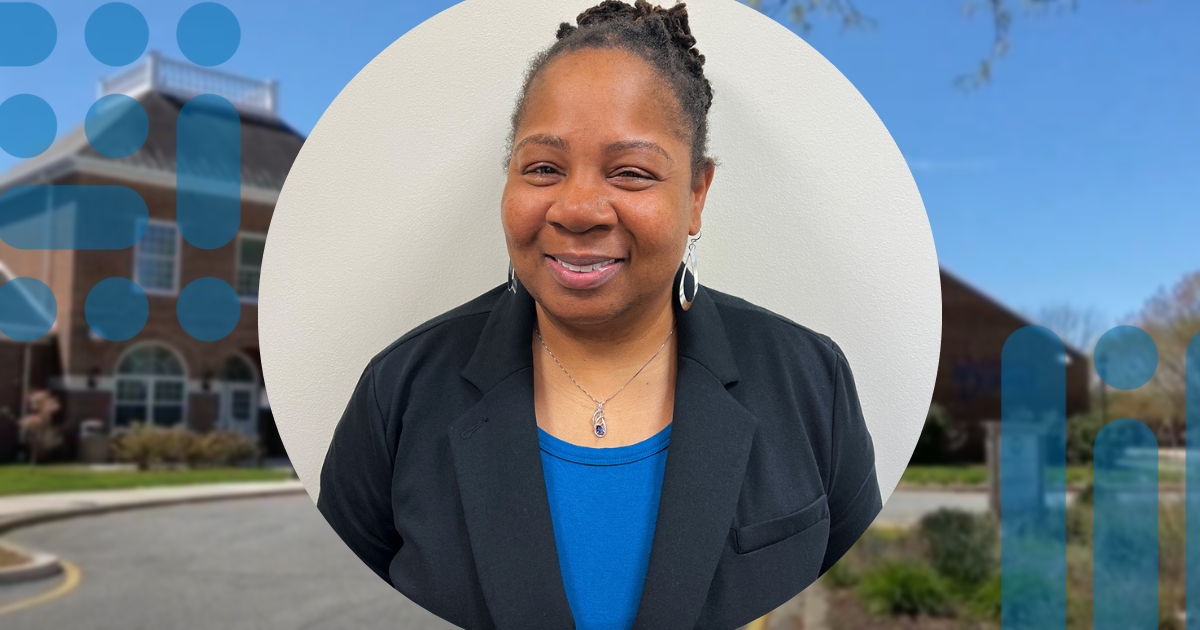
Category: Cooperative Extension

New role brings mental well-being assistance to Delaware’s underserved citizens
March 30, 2023 Written by Katie Young, Digital Content Specialist
Jennifer Seabrook-Scott is no stranger to University of Delaware Cooperative Extension. In fact, she’s dedicated much of the last 18 years to serving the citizens of Delaware, first as a nutrition assistant, then as a health and well-being extension agent. This year, she begins a new chapter in her Extension career as a Mental Wellness Extension Agent, leading a new Extension program that she is building from the ground up.
Seabrook-Scott always knew she wanted to work with the community. Back in New York City, while working as a medical registrar for the New York Children’s Health Project. When she relocated to Delaware she saw an advertisement in the newspaper seeking a bilingual nutrition assistant, a role that she knew would fit her perfectly. Today, she carries an undergraduate degree in human development and family services and a master’s in public administration (both from the University of Delaware); She is currently working on her Ph.D. in Higher Education with a Specialization in Diversity, Equity and Inclusion (University of Kentucky), an endeavor that highlights her dedication to her work and the communities she serves.
Mental well-being has become an important issue of focus, exacerbated by the COVID-19 pandemic, tragedies related to gun violence, racial injustices and senseless violence against BIPOC communities (Black, Indigenous and people of color). As humans, the ability to remain resilient in the face of struggle, pain and hardship is essential. Without this, we struggle to survive. Building this resiliency is the goal of the new Mental Wellness Program: Jenn aims to build resiliency through programming and resources made available to the citizens of Delaware, particularly those least able to access them.

These target audiences include individuals in Delaware’s underserved communities, young people (young teens through age 25) and senior citizens.
“Right now, I’m reviewing some curriculums and deciding how, where and who would benefit most from them,” explained Seabrook-Scott. “[Each of these] groups have different needs from how to pick good partners and practicing self-love, to [senior citizens] talking about no longer living independently and what that is like.”
This last group, she notes, experiences hidden difficulties often overlooked in traditional mental well-being settings. Major transitions can upend the internal lives of our aging population, leading to stress over constant medical news and treatments, their loss of agency and self-reliance, and their changing feelings of self-worth.
Her programming will also include aspects of race and how participants might navigate feeling overwhelmed and depressed surrounded by the continuous onslaught of news about unfair treatment and tragedy.
“We want to address what it’s like being a person of color in white spaces,” explained Seabrook-Scott. “I want to address everyday dynamics and help them build a skillset to deal with prejudice and microaggressions and help them find their voice in these spaces.”
Seabrook-Scott also plans to explore faith-based mental well-being, bringing much-needed programs to local churches, synagogues and mosques. The hope is that some individuals can seek help and assistance in a place and format where they feel most comfortable.
As with other Extension programs, volunteer assistance is important in helping reach new audiences and communities throughout Delaware. If you’d like to get involved with this program, please contact Jennifer Seabrook-Scott at jsscott@udel.edu.
